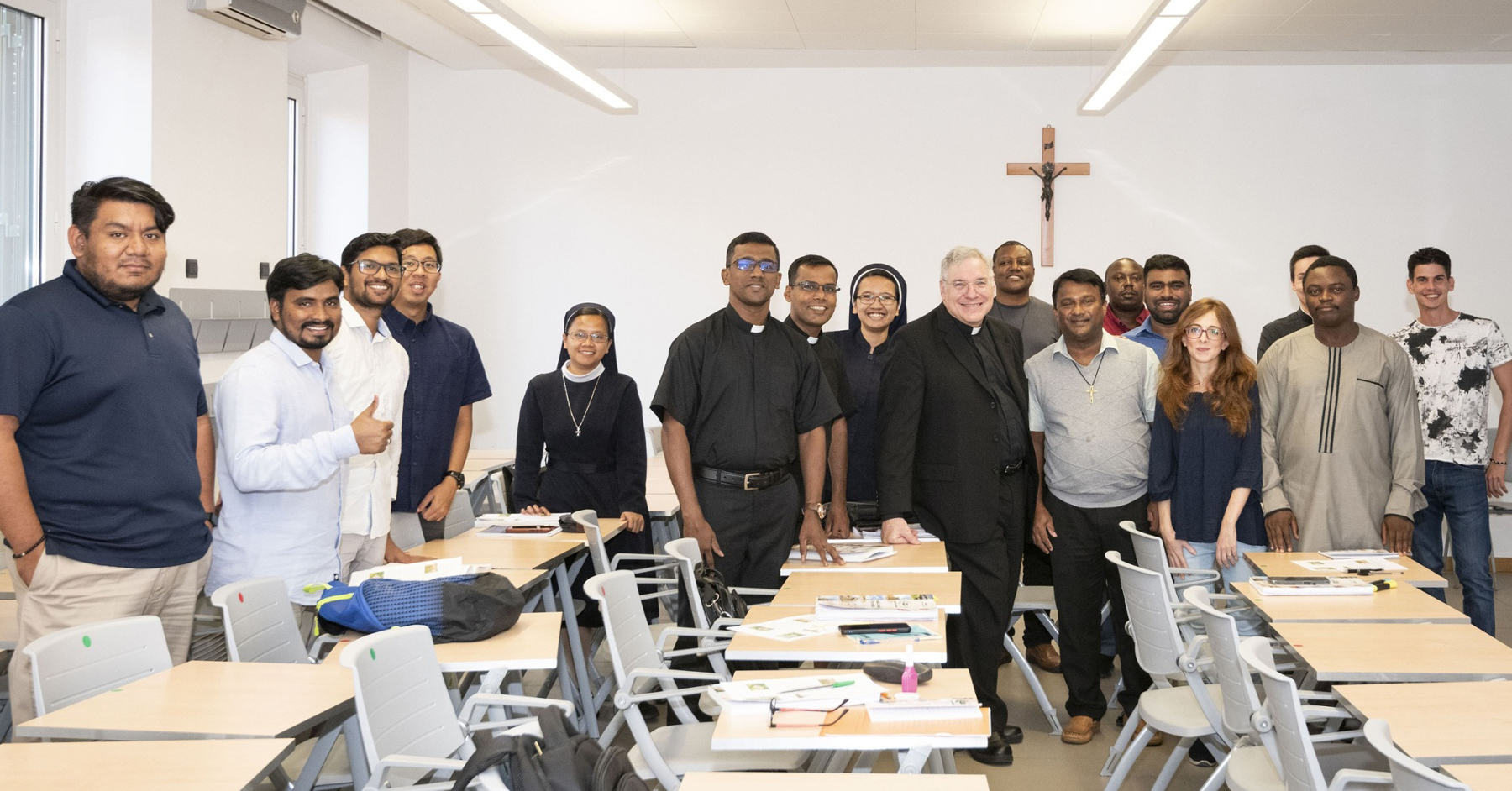
22 Nov November 2022 Reflection – Michael McFarland SJ
Vocation
November is a month when we especially celebrate All Saints and All Souls, where we remember the many precious, holy, beautiful lives that have gone before us. Then we have Thanksgiving, when we pause to express our gratitude for the gift of life and all that sustains it and makes it worthwhile. For us Jesuits, it is also Vocations Month, when we take time to appreciate the blessings of our own vocations and pray that God inspires others to follow us.
The Gospels contain many vocation stories, such as the calling of the first disciples (Lk 5: 1-11, Jn 1: 35-50) and the meeting with the Samaritan woman at the well (Jn 4: 1-42). The conversion of Paul in the Acts of the Apostles (Acts 9: 1-19) is another example. These begin with an encounter where Jesus seeks out the person and shows a special interest in them. That leads to a period of exploration, where they come to know Jesus, and he sees more deeply into their hearts and helps them know themselves better. In that process they find in Jesus something transcendent, a holiness and power that confronts them with their own weakness and sinfulness. As Peter said in Luke’s account, “Leave me, Lord, for I am a sinful man.” But Jesus’s reaction is not the contempt or rejection they expect, but loving acceptance. That is what captures their hearts and turns them into loyal followers. Jesus deepens that bond not only by accepting them as disciples, but by missioning them as his witnesses and entrusting them with his work of bringing the good news to all peoples. It is that experience of being embraced, trusted and empowered that turns them into fearless advocates.
The enfolding of a Christian vocation is the same for us today. It starts with an encounter with Christ, often mediated through others whose words, action and kindness make him present. Coming to know his mercy, wisdom and gracious humility, we fall in love with him, and to our surprise find that he is in love with us, with all our limitations and failings, and invites us to be co-workers with him in healing our broken world. Thus vocation is rooted in a deep sense of gratitude for the gifts one has received, especially the surpassing gift of God’s loving acceptance, far beyond anything we deserve.
It is always inspiring when we go to Rome to visit the Gregorian to meet so many students, seminarians, priests, members of religious orders, and now an increasing number of lay people, with a deep sense of vocation and a dedication to serving Christ in the Church. Many come from very difficult backgrounds, families and communities beset by poverty and oppression. Others come out of a society that has drifted away from their faith traditions and so are losing their source of meaning and purpose. Whatever their background, they all cherish their faith as a precious gift, one that is so crucial to a full and happy life that they want to share it with others.
The Gregorian gives them a deeper understanding of the faith, its sources, its development and how it is lived out by individuals, communities and the Church. It gives them the language and concepts to articulate the faith, teach it to others and enter into dialogue with others. It also gives them the knowledge and skills they need to deal with contemporary issues, whether moral, legal, cultural or institutional, and the specific training they will need for their future apostolates, including teaching, pastoral work, canon law, administration, evangelization and spiritual formation.
Just as important, they get first-hand experience of the worldwide Church in all its rich diversity, and learn from others who bring very different experiences, cultures and points of view yet share a common faith and a deep commitment to serving Jesus Christ. There is no doubt that they will go on to give outstanding service to the Church, as have the thousands and thousands of graduates who have gone before them.
It is just as much of a vocation to support these amazing students financially and to ensure the quality and viability of the institutions that educate and form them. Because of their sacrificial commitment to service in ministry, the students and graduates, as well as the institutions themselves, are resource-poor. Without your generosity, this work, so central to the mission of the Society of Jesus in service of the faith, could not continue. You too are valued companions of Jesus and sharers in his saving work.
Michael C McFarland, SJ
President, Gregorian University Foundation



